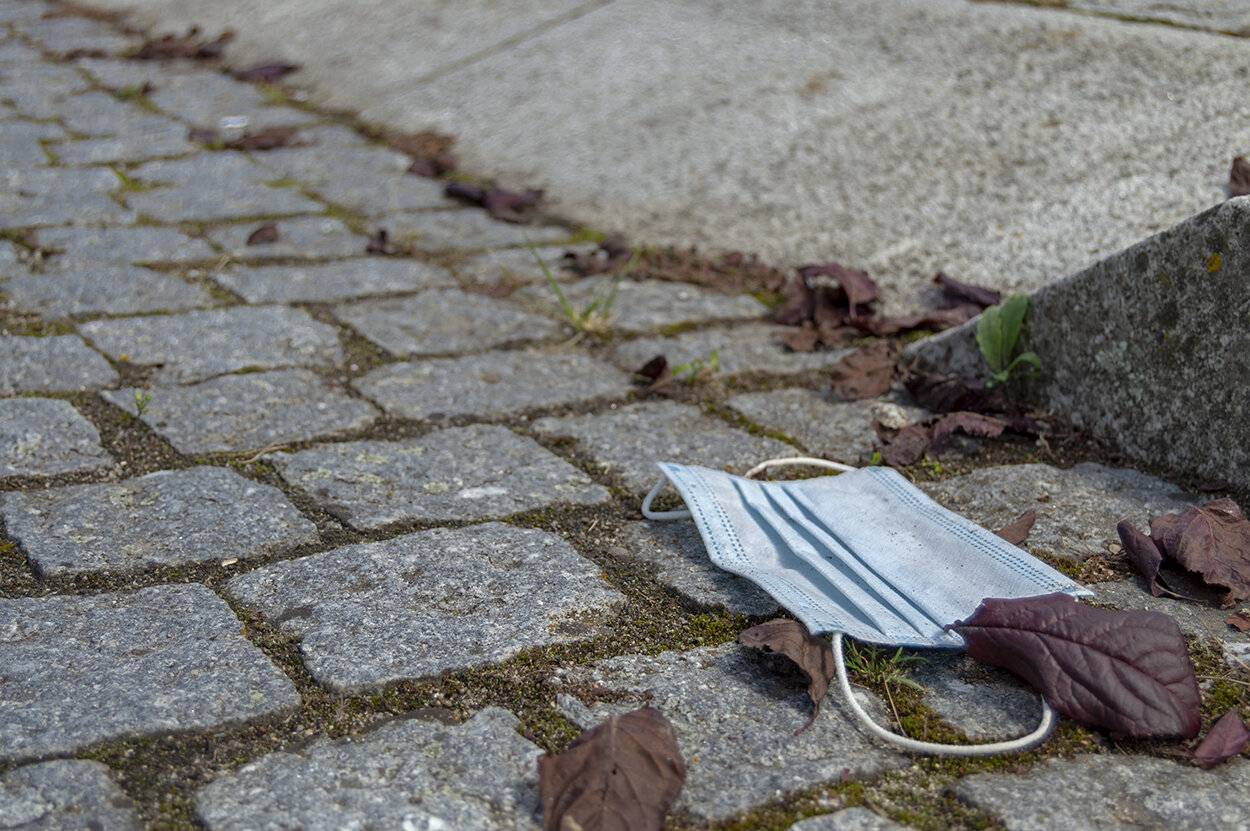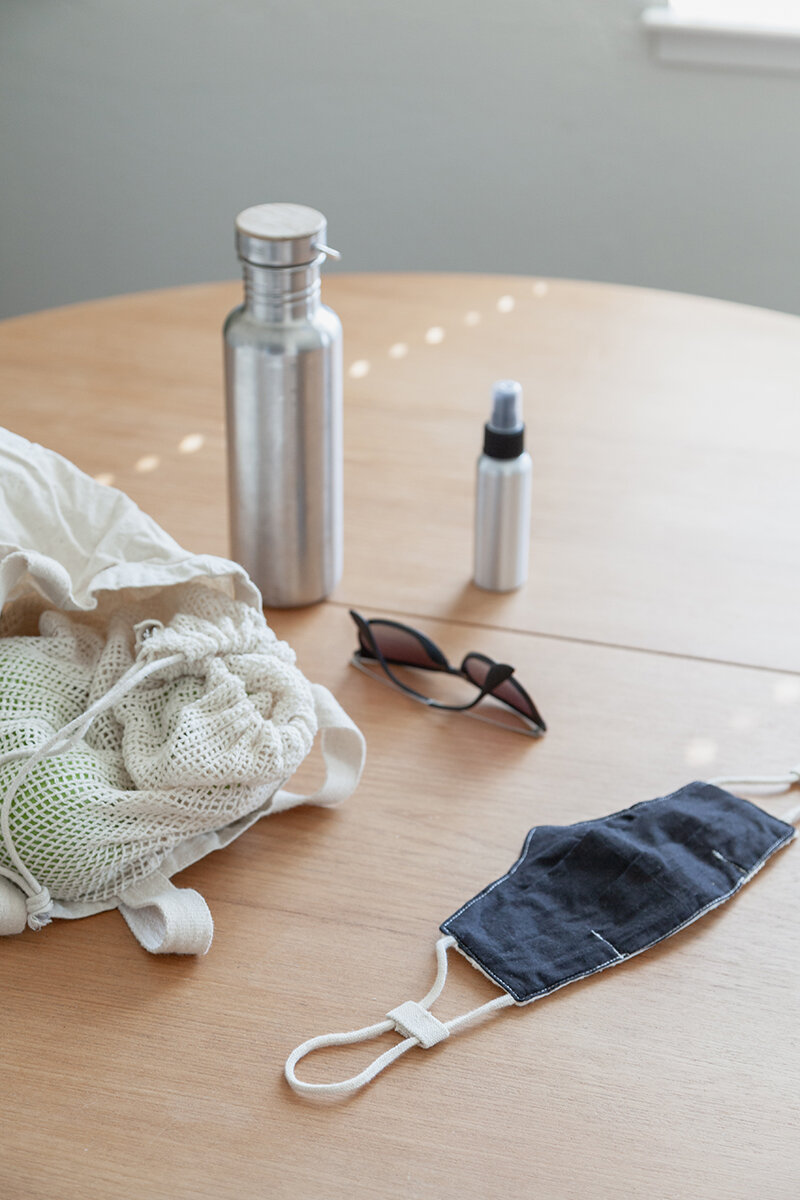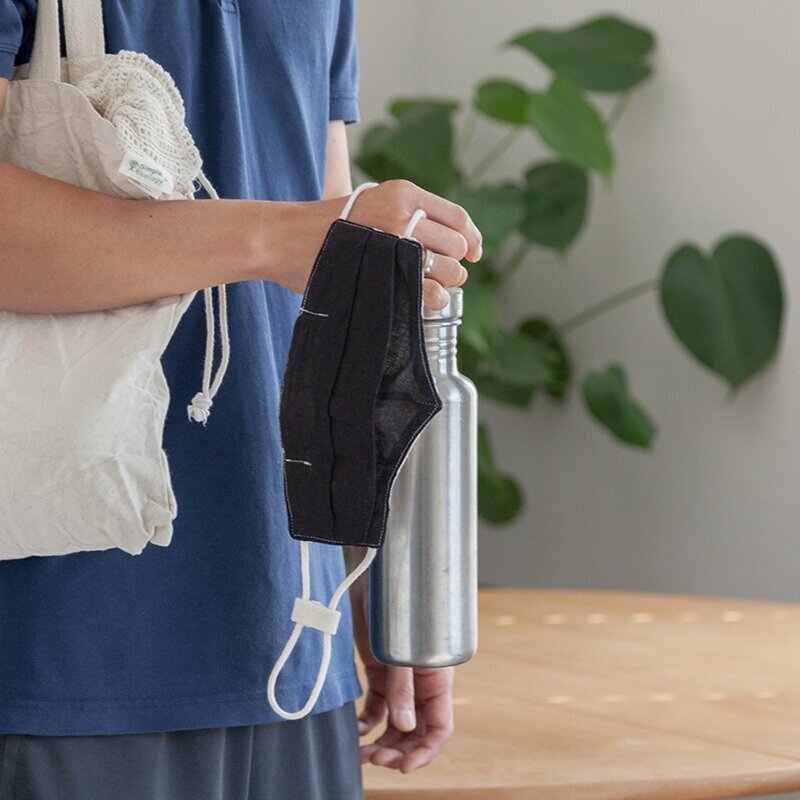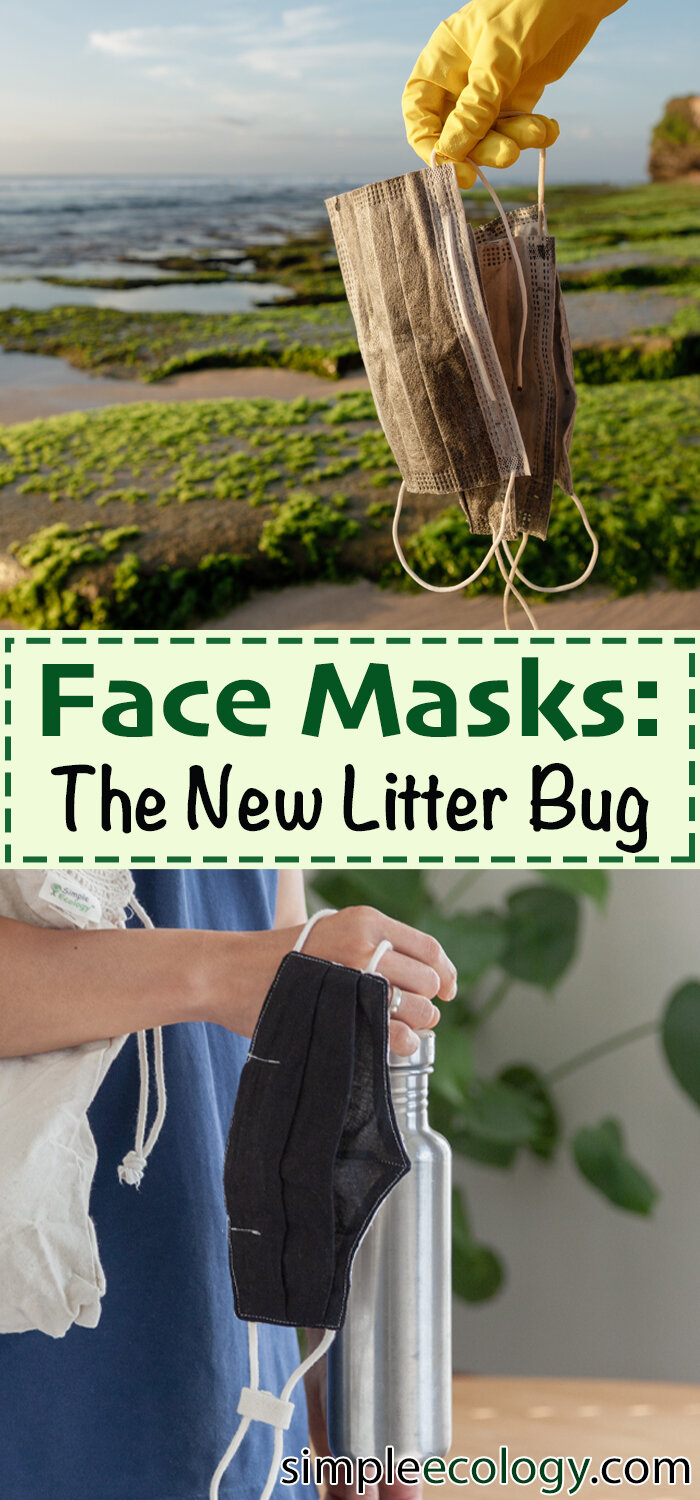Face Masks: The New Litter Bug
The global pandemic has dramatically shifted our mindset and the way we live, and unfortunately, COVID-19 has triggered an estimated use of 129 billion disposable face masks every month throughout the world. Disposable face masks have become the new disposable coffee cup, as it's easy to spot a few littered on the sides of streets, but like other single-use plastics, these disposable masks will continue to make their way into our ecosystems.
Underwater divers from a non-profit in France have found "dozens of gloves, masks, and bottles of hand sanitizer beneath the waves of the Mediterranean, mixed in with the usual litter of disposable cups and aluminum cans" (The Guardian). A similar organization in Hong Kong also found an increase in disposable masks washed up on seashores. Pictures have also surfaced showing marine life getting tangled by face masks, as uncut elastic ear loops can wrap around limbs and necks of these animals. As we continue to increase our dependence on single-use plastics to help combat the coronavirus, it won't be long until our ecosystems suffer even more from this spike in plastic pollution.
Many disposable masks, including surgical masks, also contain polypropylene plastic, so they will never truly degrade, leaching microplastics over time. As mentioned in one of our previous blog posts, plastics are found in all sorts of products, from tea bags to clothing, and it's more than likely that our food chain is full of microplastics because of the waste and litter that ends up in our waterways and soils. Disposable masks and gloves will most definitely increase the amount of microplastics in our environment.
Shifting from Disposable to Reusable
Though it's tricky to navigate a global pandemic, there's no better time to shift from a disposable to reusable mentality. Reusable face masks are a great option compared to disposable surgical masks, and if thicker and made with a higher thread count, can do a better job at preventing the transmission of breath particles.
Simple Ecology recently introduced a new affordable, reusable face mask made with GOTS Certified Organic Cotton. The unique mesh "Comfort Layer" helps reduce skin irritation and allows for moisture to disperse away from the skin, which is especially helpful if you are wearing it for an extended time, like at work. They also have two layers of a very finely woven organic cotton on the outside and a filter pocket available for additional filtering if you are going into a high-risk area.
The mask is also designed to contour the face, with a pointed tip to reach up the nose, an expandable body to cover the mouth and chin, and unique fabric adjusters, so no plastic beads or elastic, which is most common on reusable face masks. Elastic straps can irritate the skin behind your ears, but the adjusters allow for independent tightening above and below the ear. Like the rest of the mask, these straps are 100% biodegradable and compostable.
It may be some time until we'll be able to go outdoors without our face masks on, so consider investing a few of these reusable masks. Be sure to also do a quick handwash each day after using in cold water, which you can find a simple tutorial for here.
Other Ways to Reduce Plastic During the Pandemic
Though plastics seem to be appearing wherever we go, there are still a few ways to combat single-use plastics and waste at home, even during the pandemic. First, if going to the grocery store, there are still ways to refuse single use produce and grocery bags. Regulations have been changing since the pandemic began, and more stores are starting to allow reusable bags as long as you bag your own items - if you aren’t sure, you can always call stores in advance to check. If reusable bags are still not allowed, you can work around the situation by placing loose items into your cart or basket, and bagging the items outdoors yourself.
Missing your morning coffee at your favorite local coffee shop? Chances are, coffee shops aren’t allowing reusable mugs and cups, so try making your own at home. Maybe now is the perfect time to try mixing up your own drinks, by brewing your own coffee and a batch of nut milk with some reusable straining bags. It’s often more cost effective, and you may be able to try getting your ingredients from online zero waste shops such as Sun & Swell Foods!
Many local, small businesses are also in need of support during this time, so if you're hungry and are considering getting take out from a local eatery, call or place a note in your order asking for no utensils, napkins, or plastic bag. Don't be discouraged if it doesn't happen correctly the first time, as most restaurant employees are on auto-pilot when fulfilling orders. However, the more often you ask, the more likely they may remember for the future. Remember that as a customer, you have the right to offer suggestions to the businesses you decide to support.
If you need to shop online, also consider supporting local retail shops or zero waste stores that prioritize minimal and plastic free packaging to help reduce your waste. When you consider supporting smaller businesses that value sustainability, they’re more likely to use paper based, recyclable packaging already, or more willing to change if you ask. Be sure to check the shipping and packaging practices for any store, or ask them if they don’t have that information available - you can check Simple Ecology’s packaging practices here. Large retailers such as Amazon, Target, and Walmart need quick and convenient packaging solutions to fulfill their high sales volumes, which often result in excess plastic packaging material that is not recyclable. However, if it’s not in your budget or reach to support smaller businesses at this time, also consider reaching out to the large retailers you purchase from, requesting more recyclable packaging options, to see if they can make those changes.






